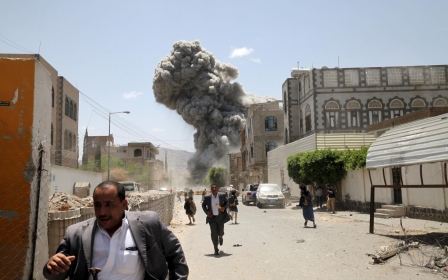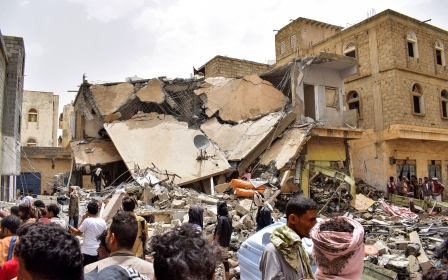UN humanitarian response in Yemen 'unacceptably poor', warns review
The United Nations's response to the ongoing crisis in Yemen has been branded "unacceptably poor" in a report produced by an independent evaluation team.
Findings released by the Inter-Agency Humanitarian Evaluation (IAHE) of the Response to the Humanitarian Crisis in Yemen provide a damning assessment on the UN's work in Yemen since 2015, citing a severe lack of appropriate equipment and failure to provide proper infrastructure for displaced Yemenis (IDPs), including a lack of toilets, half-constructed roads and faulty agricultural equipment.
Although the report acknowledged that the UN's humanitarian response had managed to reduce malnutrition and boost food security, overall the $16bn mobilised by UN agencies had been inadequately used to alleviate what has been described as the world's worst humanitarian disaster.
'Short-term humanitarian funding is ultimately not suited to a much longer-term protracted crisis'
- Philip Proudfoot, researcher
Yemen, which is in the eighth year of a war which is estimated to have killed more than 230,000 people and displaced millions, has long been viewed as dangerous territory for aid workers, and both the Saudi-led coalition and the Houthi movement have been criticised for not allowing easy access.
However, a major problem outlined in the IAHE report is how the "conservative security posture" used by the UN has led to "bunkerisation", whereby staff end up confined to protected offices and have limited interaction with the communities they are supposed to be working with.
New MEE newsletter: Jerusalem Dispatch
Sign up to get the latest insights and analysis on Israel-Palestine, alongside Turkey Unpacked and other MEE newsletters
The report said the UN had chosen to regard the whole country as "extremely high risk" for staff, while in reality the situation is varied across different regions, leading to a reliance on outsourced monitoring and assessment.
“The UN has managed to keep the life-support switched on in Yemen for the past six years, but we found that the short-term humanitarian funding is ultimately not suited to a much longer-term protracted crisis," said Philip Proudfoot, a research fellow at the Institute of Development Studies and member of the Yemen Inter-Agency evaluation team.
“In cases like Yemen, there must be a shift towards longer-term development funding and support that can make sustainable improvements in areas such as nutrition, health, education, protection and livelihoods.”
Food aid poorly distributed
Last month, the UN's World Food Programme (WFP) announced it would be forced to reduce food aid to Yemen citing a number of reasons including funding gaps, price rises and the impact of Russia's invasion of Ukraine.
Around 13 million Yemenis are reliant on food aid and the IAHE reported that food was "consistently the number one need" mentioned to the team by Yemenis.
But they said many Yemenis were unaware of how to access aid and that the "lists" used to assign food aid were frequently not updated and that humanitarian agencies "had not consulted the population systematically about their needs".
On top of this, the report said infrastructure provision was poor. The team noted that "new schools were badly built, roads half finished, agricultural machinery not working, supplies out of date, sewage tanks over-flowing and IDP sites without toilets or basic amenities".
It added that their investigation suggested these problems were not confined to "a few isolated examples".
Abeer Alabsi, an IAHE team member based in Yemen, said the end result of all these problems was that "the most vulnerable groups - women, children, elderly and people with disabilities - have suffered the most, but their basic needs have not been addressed".
"For instance, we have seen that women are still deprived of the most basic rights of safety and dignity because protection is not at the centre of the humanitarian response in Yemen," she said.
"In the future, vulnerable groups must be put at the heart of all humanitarian programmes.”
Middle East Eye delivers independent and unrivalled coverage and analysis of the Middle East, North Africa and beyond. To learn more about republishing this content and the associated fees, please fill out this form. More about MEE can be found here.





